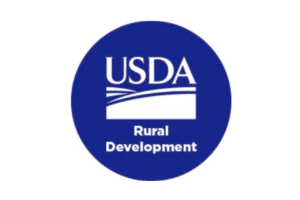On February 12, the White House released the President’s Budget Request for FY 2019 which originally called for an 18.3% cut to the Department of Housing and Urban Development. Later that same day, Mick Mulvaney, Director of the Office of Management and Budget, released an addendum to the budget request, modifying the initial request to reflect increased budgetary spending caps that were recently adopted by Congress. Notably, the White House addendum requests additional funding for defense that is in line with the new spending caps but only requests a modest increase, well below the statutory limit, for non-defense spending. The addendum increases its request for HUD by $2 billion, accounting for a 14.2% overall cut to the Department’s budget. Before delving into details, it’s important to remember that the Congress is not obligated to follow the President’s budget request and will very likely strike its own balance. However, policy issues and themes outlined within the Budget request are taken into consideration and will likely frame the FY-2019 appropriations debate.
NH&RA Executive Director Thom Amdur observes, “Affordable housing is a critical part of our nation’s economic infrastructure. HUD’s programs are vital tools that have leveraged billions of dollars in private-sector capital for community development, contributed to the economic revitalization of countless communities, and have expanded opportunities to millions of our most vulnerable fellow Americans. At a time when Harvard University’s recent “State of the Nation’s Housing Report” finds that affordability pressures continue at near record levels, we cannot afford to eliminate so many vital community development resources. If we really want to get America ‘winning again’ then we need to renew our commitment to expanding affordable housing options, particularly for low and moderate-income Americans.”
The Unknown
The President’s Budget Request is lacking in many details. While we know rental assistance programs in general would receive a cut of roughly 11%, we do not know the exact proposed funding numbers for programs like Project-Based Rental Assistance, Tenant-Based Rental Assistance, the Housing for the Elderly Program, the Public Housing Operating Fund, Housing for Persons with Disabilities, and Sec. 515.
Oddly, the addendum calls for adding back $300 million to the Public Housing Operating Fund, though the original budget document does not specify how much funding the Department is requesting to receive (enacted funding in 2017 was $4.4 billion). The same is true for Tenant-Based Rental Assistance, which the addendum calls for adding an additional $700 million; however, since the budget gives no specific number, we do not know what the final request for the program is (2017 enacted levels were $20.29 billion).
What We Do Know
Programs Proposed for Elimination
The following programs are proposed to be eliminated or “zeroed-out” in the President’s Budget Request:
- Public Housing Capital Fund
- HOME Investments Partnership Program
- The CDFI Fund
- Choice Neighborhoods Initiative
- Community Development Block Grants
- Native Hawaiian Housing Block Grants
- FHA General and Special Risk Insurance Fund
- S. Interagency Council on Homelessness
- Neighborhood Reinvestment Corporation
- Low Income Home Energy Assistance Program
- Weatherization Assistance Program
- Delta Regional Commission
Policy
The majority of HUD’s budget each year goes to rental assistance programs. The budget suggests reforming rental assistance by requiring able-bodied individuals to pay more than the current 30% of adjusted income towards rent. Increased payments for able-bodied individuals are meant to balance the overall funding decrease rental assistance programs would receive. The addendum specifies that an additional $1 billion be added to rental assistance programs solely for the benefit of elderly and disabled families.
While Congress is not likely to follow the numbers outlined in the budget request, the proposal to have stricter requirements on able-bodied people is a popular idea amongst many Republicans, and we could potentially see such a rent increase or work requirements placed on able-bodied families receiving rental assistance. There are several issues with this, as pointed out by the Urban Institute:
- Most able-bodied households on rental assistance are already working
- Putting a higher cost-burden on these households may make it more difficult for those without a job to find one. Employed individuals may find it more difficult to stay employed as it reduces their ability to pay for employment-supporting items like transportation and childcare.
- There is no evidence that rent increases or work requirements would lead to an increase in employment or income for lower income households.
Some Programs Receive Praise
The budget request singles out RAD as a successful example of leveraging private financing, and requests $100 million for the program, lifting the project cap, and expanding RAD for Project Rental Assistance Contracts (PRAC). Unfortunately, the same budget document also eliminates the Public Housing Capital Fund and cuts the Public Housing Operating Fund budget. If implemented, such cuts would effectively hamstring the program. An additional $100 million for the program would go a long way in assisting deeper needs projects but without adequate Capital and Operating fund budgets, the program simply will not work. If PHAs are to use RAD to leverage private sector capital to address their $40 billion backlog of capital needs and health and safety repairs, then Capital and Operating fund budgets must be maintained at current levels.
The budget also requests $75 million for the Family Self-Sufficiency program (equal to 2017 funding) and $10 million for the Jobs-Plus Initiative. $2.4 billion is also requested for the Homeless Assistance Grants program (equal to 2017 funding).
Reactions to the Budget and How You Can Participate:
National Housing Conference President and CEO David M. Dworkin was quoted saying “the best thing one can say about this budget is that it is dead on arrival…it undermines years of public-private investments in housing and community development that have had broad bipartisan support, like the CDFI Fund and block grant funding for neighborhood redevelopment. It even cuts the Capital Magnet Fund and National Housing Trust Fund, which aren’t even paid for by taxpayers.”
While the proposed budget may in fact be dead on arrival, it sets the stage for another year of needed advocacy on behalf of our most vital programs.
- Campaign for Housing and Community Development Funding (CHCDF) will be holding a webinar about the Administration’s budget request on February 20 at 3:00 pm ET. Register here.
- Sign two national letters urging Congress to reject the president’s harmful proposals. Please share these letters and sign on by March 16.
- One letter – READ AND SIGN HERE – urges Congress to provide the highest level of funding possible for affordable housing and community development programs.
- The other letter – READ AND SIGN HERE – asks Congress to oppose any proposals that would cut housing benefits by increasing rents and imposing work requirements on current and future tenants.
| HUD / RD PROGRAMS | ENACTED FUNDING FY 2017 (millions) | FY 2018 CR ANNUALIZED (millions) | PRESIDENT’S FY 2019 BUDGET REQUEST (millions) |
|---|---|---|---|
| Project-Based Rental Assistance | $ 10,816.00 | ? | |
| Tenant-Based Rental Assistance | $ 20,292.00 | ? | |
| Public Housing Capital Fund | $ 1,941.50 | $ 1,941.50 | $ – |
| Homeless Assistance Grants | $ 2,383.00 | $ 2,383.00 | $ 2,383.00 |
| Choice Neighborhoods Initiative | $ 138.00 | $ 137.50 | $ – |
| Housing for the Elderly Program | $ 502.40 | ? | |
| HOME Investment Partnerships | $ 950.00 | $ 950.00 | $ – |
| Community Development Block Grants | $ 3,060.00 | $ 3,060.00 | $ – |
| Public Housing Operating Fund | $ 4,400.00 | ? | |
| Housing for Persons with Disabilities Program | $ 146.20 | ? | |
| Section 515 Rental Housing | $ 35.00 | ? | |
| Section 521 Rental Assistance | $ 1,405.00 | ? | |
| RD Multifamily Preservation & Revitalization | $ 41.00 | ? | |
| Family Self-Sufficiency Program (FSS) | $ 75.00 | $ 75.00 | $ 75.00 |
| Native American Housing Block Grant | $ 654.00 | $ 654.00 | $ 600.00 |
| RAD | $ – | $ – | $ 100.00 |
| Native Hawaiian Housing Block Grants | $ 2.00 | $ 2.00 | $ – |
| HOPWA | $ 356.00 | $ 356.00 | $ 330.00 |
| FHA MMI Fund Account | $ 130.00 | $ 130.00 | $ 150.00 |
| FHA — General and Special Risk Insurance Fund | $ – | $ – | $ – |
| Fair Housing Programs | $ 65.90 | $ 65.30 | $ 62.30 |



